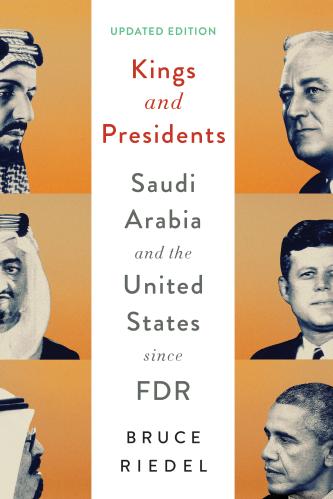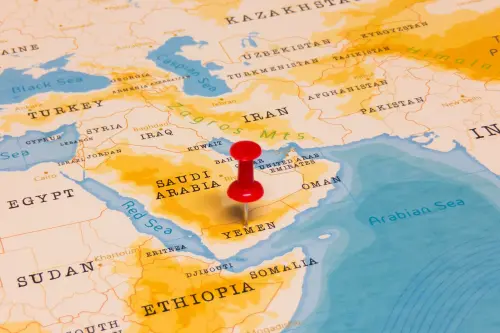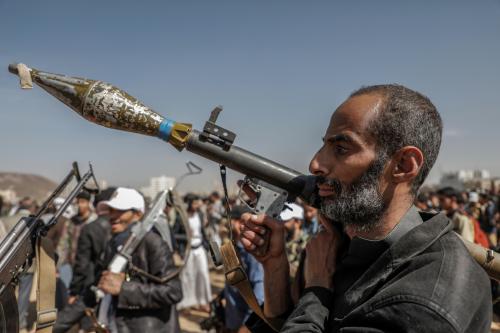The two-and-a-half years-old war in Yemen passed a crucial milestone this week. The rebel alliance split apart and the Iranian-backed Houthi Zaydi militants crushed their putative partner former President Ali Abdullah Saleh and his followers in an urban blitzkrieg. Meanwhile, the Saudis stood by and watched as their conspiracy to win the war collapsed in their faces.
Ali Abdullah Saleh was Yemen’s ruler for more than three decades. He unified the country for the first time as an independent state in 1990. He famously said ruling Yemen and its fractious politics was like dancing on the heads of snakes. I met him several times over the decades and was impressed by his ability to play the hand of a weak power to the utmost. He lost his touch on Monday.
The Zaydi Shiite Houthis have been in a state of revolt against Yemen’s government for more than a decade. They launched their uprising first against Saleh and took control of the northern most mountains of Yemen around their stronghold of Saada. Several military campaigns by Saleh, with Saudi armed support, failed to defeat them. The Arab Spring led to Saleh’s removal and replacement with his deputy Abdu Rabbu Mansour Hadi, a Sunni southerner backed by the Saudis.
In 2014, the Houthis and Saleh reconciled. Late in the year they seized Sanaa and toppled Hadi. In 2015, they moved to seize Aden, the major port on the Indian Ocean. Saudi Arabia, alarmed that a Shiite militia with ties to Iran and Hezbollah was taking over their southern neighbor, intervened. It was the first major policy initiative for the new monarch, King Salman, and his son, then-Defense Minister Prince Muhammad bin Salman.
Operation Decisive Storm went wrong from the start. Two longstanding Saudi allies, Egypt and Pakistan, refused to provide troops for the war. Pakistan’s parliament even unanimously voted against any participation in the war. Oman, Yemen’s neighbor, also refused to join the Saudi led coalition. The Saudi intervention did save Aden but Hadi’s control there today is so unstable he resides in Riyadh. Much of western Yemen is a chaotic battlefield where al-Qaida operates. The frontlines in the war have barely moved in months.
President Barack Obama did back the Saudis, and American munitions and technology has enabled the Saudi air campaign and the blockade of Yemeni territory in rebel hands. The Obama administration quietly tried to get U.N.-sponsored peace negotiations to secure a ceasefire and a political process but with no success. The majority of Yemenis live in the rebel zone.
The impact of the blockade is the world’s largest humanitarian catastrophe. This week, the United Nations reported that 8.5 million Yemenis are at risk of starvation. The top U.N. relief official said the country is “now on the cusp of the largest famine in modern times.” Food and medicine is unavailable for many, malnutrition and disease are weapons of war. Yemeni children are at particular risk.
For months, the Saudis have privately claimed to have a strategy to win the war by dividing the rebel alliance. Talks in Abu Dhabi with Saleh’s son Ahmed became an open secret. In October, the Saudis announced that they had let a Russian medical team to visit Sanaa for a life-saving procedure to save the former president’s life. It was a clear signal to Saleh.
The Houthis and the Iranians had never trusted Saleh. The Houthis moved to isolate his supporters and take over his bases. They had a plan. They prepared for his flipping sides.
Last week, Saleh announced his defection and denounced his former partner as Iranian puppets. Street fighting swept the capital. The Iranian embassy was attacked. By Monday the Houthis had the upper hand and had killed the 75 year-old Saleh. Ahmed is trying to rally resistance, but he has not resided in Yemen for years and is tainted by his association with the Emiratis and Saudis. It’s too early to assess how firm the Houthi control of the north will be, but for now they are the winners.
The bankruptcy of Saudi planning is breathtaking.
The Saudis apparently had no plan to assist Saleh. After months of conspiracy, when the moment arrived the Saudis were powerless to help the Saleh loyalists. The message will not be lost on other potential dissidents. The bankruptcy of Saudi planning is breathtaking. Now the Royal Saudi Air Force (RSAF) is intensifying its bombing of Sanaa and the carnage is getting worse. The poorest country in the Arab world is being systematically destroyed by the richest.
Like Obama, the Trump administration is backing the Saudi coalition. But Congress is increasingly reluctant to vote for new arms sales to the coalition. In the United Kingdom, the RSAF’s other major supplier, opposition to the war is also growing. The Saleh fiasco will only add to the perception that the coalition has no strategy for the war aside from starvation and disease. Labor Party leader Jeremy Corbyn has publicly called for both America and Britain to stop aiding the Saudis.
The Iranians are crowing about Saleh’s demise. They provide some assistance to the Yemeni rebels, especially for their ballistic missile force which has struck Riyadh and other Saudi cities, but they are spending only a few million dollars a year on the war. Hezbollah also assists the Houthis, but its backing is also cheap. In contrast, the war costs Saudi Arabia at least $5-6 billion a month. It remains to be seen if the demise of the Saleh conspiracy will produce some new thinking in the royal palace.
The Brookings Institution is committed to quality, independence, and impact.
We are supported by a diverse array of funders. In line with our values and policies, each Brookings publication represents the sole views of its author(s).






Commentary
In Yemen, Iran outsmarts Saudi Arabia again
December 6, 2017